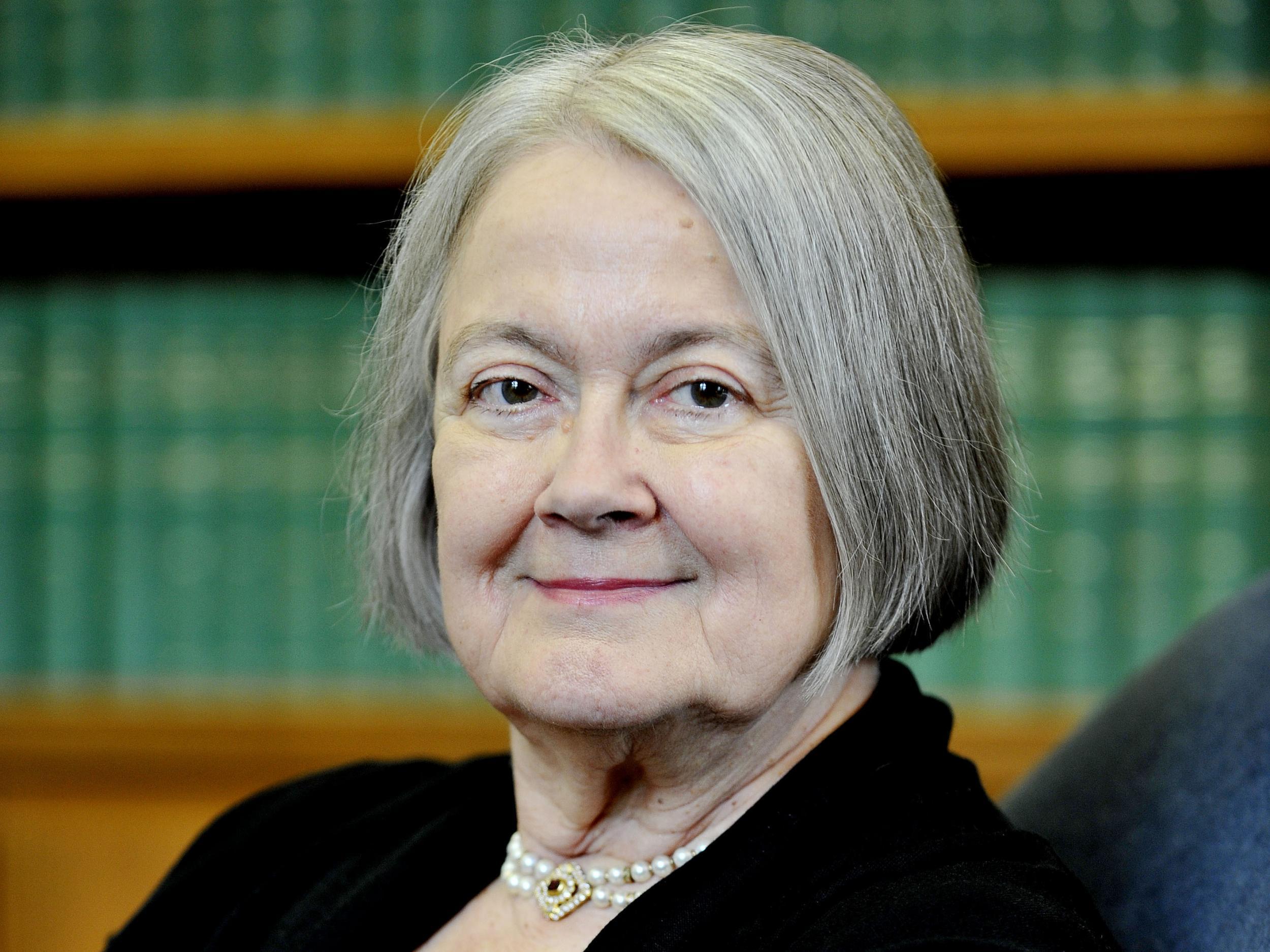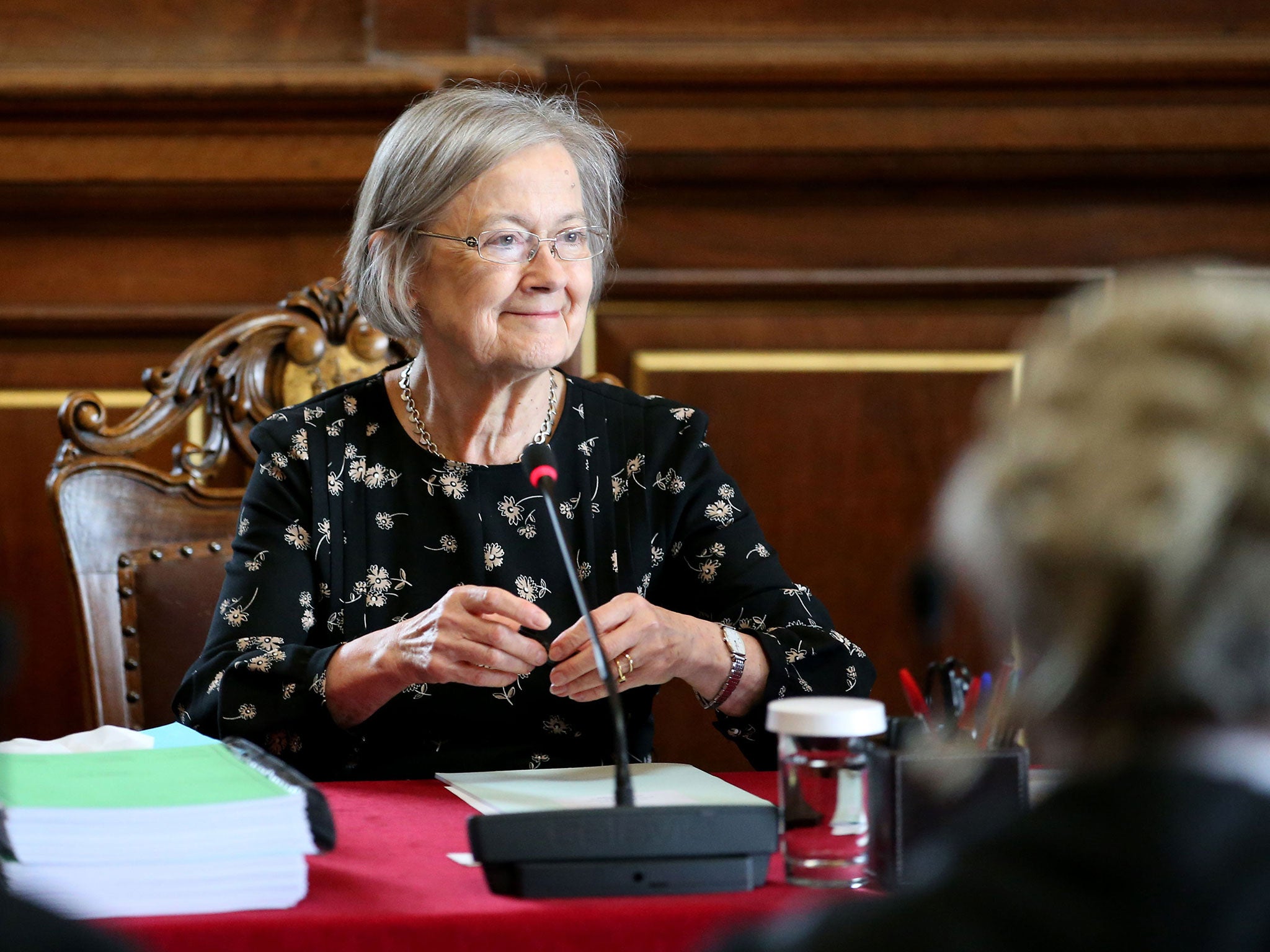Baroness Hale of Richmond becomes first woman appointed as UK's most senior judge
Landmark appointment comes after judiciary statistics show women and ethnic minorities remain under represented

Your support helps us to tell the story
From reproductive rights to climate change to Big Tech, The Independent is on the ground when the story is developing. Whether it's investigating the financials of Elon Musk's pro-Trump PAC or producing our latest documentary, 'The A Word', which shines a light on the American women fighting for reproductive rights, we know how important it is to parse out the facts from the messaging.
At such a critical moment in US history, we need reporters on the ground. Your donation allows us to keep sending journalists to speak to both sides of the story.
The Independent is trusted by Americans across the entire political spectrum. And unlike many other quality news outlets, we choose not to lock Americans out of our reporting and analysis with paywalls. We believe quality journalism should be available to everyone, paid for by those who can afford it.
Your support makes all the difference.A woman has been appointed as the most senior judge in the UK for the first time, as statistics show women and ethnic minorities remain under represented in the judiciary.
The Queen has approved Baroness Hale of Richmond's appointment on as president of the Supreme Court and she will take up the post when her predecessor retires in September.
“It is a great honour and a challenge to be appointed to succeed Lord Neuberger,” Lady Hale said.
"While I of course look forward to working alongside all my colleagues, it is a particular pleasure for me to be taking up the post at the same time as we welcome only the second ever woman to sit on the UK's top appeal court.”
Lady Hale was made deputy president of the Supreme Court in 2013, having previously served as the first female Lord of Appeal in Ordinary and Justice of the Supreme Court from its opening in 2009.
The 72-year-old grew up in Yorkshire, attending a state grammar school in Richmond, before attending Cambridge University and teaching law at Manchester University.

She qualified as a barrister and practiced at the Manchester Bar, where she specialised in family and social welfare law and founded the Journal of Social Welfare and Family Law, becoming the first woman to be appointed to the Law Commission in 1984.
Five years later, Lady Hale became a High Court judge - the first to have made her career as an academic and public servant rather than a practising barrister – and was the second woman ever promoted to the Court of Appeal and first female Law Lord.
Lady Hale said she plans to use her new role to “develop closer links with each part of the United Kingdom, for example by sitting outside London, and improving the ways in which we communicate our work to the public”.
She added: “Recent high-profile cases mean that more people than ever before have heard of the Supreme Court, and we hope that this will help to create a broader understanding of how the judiciary serves society.”
During her time as deputy president of the Supreme Court, she has ruled on numerous headline-hitting cases, including the Brexit appeal that saw the Government forced to hold a parliamentary vote on Article 50.
Most recently she was on the panel of justices who ruled in favour of John Walker, the gay ex-cavalry officer who won a landmark pensions ruling to secure his husband the same rights as a wife.
She retains her links with the academic world as Chancellor of the University of Bristol, Visitor of Girton College, Cambridge, and Visiting Professor of Kings College London.
Three new justices have also been appointed to the Supreme Court - Lady Justice Black, Lord Justice Lloyd Jones and Lord Justice Brigg – who will take up the role when Lady Hale is sworn in officially as president on 2 October.
The appointments were confirmed the day after the judiciary published its diversity statistics, showing that women and ethnic minorities remain severely under-represented.
The Lord Chief Justice – the most senior judge in England and Wales – outlined efforts from the Judicial Appointments Commission, universities and professional bodies to attract minority groups.
Lord Thomas said he was “very concerned about the slow recruitment of black, Asian, and minority ethnic (BAME)” judges and a fall in the number of non-barrister judges, adding: “Despite the leadership that has been demonstrated over the last year, progress is not as fast as we would wish.”
Women make up 28 per cent of court judges and 45 per cent of tribunal judges, while the proportion of BAME judges stands at just 7 per cent.
Join our commenting forum
Join thought-provoking conversations, follow other Independent readers and see their replies
Comments